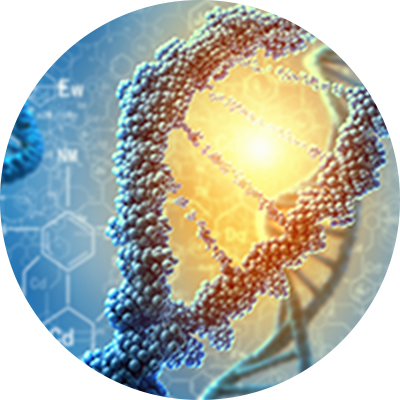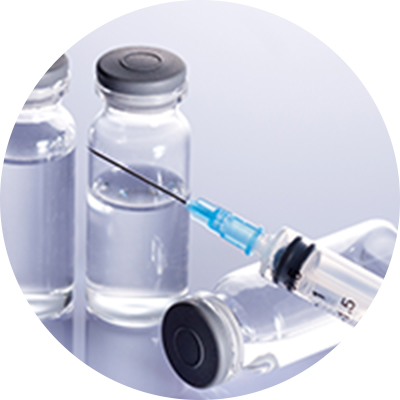TumorClean™
cancer genetic testing service
Tumorclean™ cancer genetic service
TumorClean™ is a cancer genetic testing service that accurately diagnoses the possibility of developing various cancers and chronic diseases by analyzing individual genetic mutations and gene methylation levels.
TumorClean™ cancer genetic testing service is necessary for following people.
This genetic testing is a diagnosis that analyzes DNA in saliva and blood. When saliva is used as a sample, it is possible to simultaneously analyze more than 13 cancers, 9 major chronic diseases, and harmful bacteria that cause periodontal disease through DNA analysis in saliva, with an accuracy of over 97%.
TumorClean™ cancer genetic diagnosis Service not only predicts the onset of cancer and other diseases, but also provides nutritional recommendations and disease progression monitoring services.
| cancer | disease |
|---|---|
| Stomach cancer, lung cancer, colorectal cancer, liver cancer, breast cancer, ovarian cancer, prostate cancer, uterine cancer, pancreatic cancer, thyroid cancer, head and neck cancer, bladder cancer, leukemia | Cardiovascular, ApoE (dementia), diabetes, hypertension, hyperlipidemia, osteoporosis, rheumatoid arthritis, atopic dermatitis Vitamin D |

Those who are concerned about recurrence after receiving cancer treatment, those who suspect residual cancer

Those who have family members or relatives who have or have had cancer

Those who show signs of physical abnormalities even though the results of the health checkup are normal

Those who are burdened or afraid of invasive testing
Difference between regular cancer diagnosis versusTurmoClean™cancer genetic testing
| Type | Diagnose method | Advantage & disadvantage | Remarks |
|---|---|---|---|
| Clinical diagnosis | Various blood tests, dark mark tests | Below 50% of finding the cancer | It is suitable for doctors to view clinical symptoms data such as low cost and metasmission of cancer surgery patients. |
| Imaging diagnosis | X-Ray, CT, MRI, ultrasonic testing | Tumors less than 1cm hard to find | Metasized at diagnosis |
| Diagnosis | Testing | Purpose is not prevention but cancer treatment | For solid cancers, mortality within 5 years is more than 50% |
| TumorClean™ cancer genetic diagnosis | Genetic diagnosis | Check from the early cancer stage | Screening for systemic cancer (Available from the precancerous stage, more than 95% accuracy) |
※Diogene genetic testing does not mean diagnosis (confirmation) of a particular disease, it is a predictor of the risk per carcinoma, not a replacement for other tests such as imaging and biopsy. An overhaul for confirmation should be carried out at the relevant hospital for each site.
TumorClean™ Cancer genetic testing is conducted in the following procedures.

The TumorClean™ cancer genetic testing service recommends nutrients essential for the health of the examinee based on the test results.
| Item | nutrient | function |
|---|---|---|
| stomach cancer |
allicin | It has the ability to suppress the growth of Helicobacter pylori, a factor in gastritis, gastric ulcer, and gastric cancer, by strengthening the immune system |
| Galactan(galactosan) | It neutralizes acidic substances accumulated in the body to suppress cancer cell proliferation and improve immunity. | |
| vitamin U | It strengthens the mucous membrane of the stomach wall and has the function of restoring it when the stomach wall is inflamed. | |
| Glucosinolate | It has an excellent effect in preventing gastric cancer through anticancer, antibacterial and insecticidal action | |
| Lung cancer |
amygdalin | It relieves the accumulation of nicotine caused by smoking and plays a role in strengthening the lung function by detoxifying. |
| Ganglioside | It has the function of cell growth, proliferation, and differentiation, and is effective in inhibiting and preventing cancer cells. | |
| selenium | It has the function of inhibiting the formation of tumor cells by antioxidant action and inducing the death of cancer cells. | |
| lycopene | It reduces harmful oxygen in the body, suppresses lung damage, and has the function of detoxifying nicotine. | |
| colorectal cancer | Polyunsaturated fatty acids | It inhibits the occurrence of colorectal cancer by generating beneficial intestinal microbes. |
| insoluble fiber | It promotes bowel movement, improves constipation, and has the function of keeping the intestine healthy. | |
| Omega 3 | It has the function of blocking the growth and metastasis of cancer by binding to the free fatty acid receptor that inhibits the growth of cancer cells. | |
| sulforaphane | It removes carcinogens from the body, prevents cancer recurrence, and is effective for colon health because of its high amount of dietary fiber. | |
| liver cancer | lignan | It has the function of preventing liver damage and promoting rehabilitation to suppress the occurrence of liver cancer. |
| vitamin C | The antioxidant component of vitamin C has the ability to remove toxins from the body and prevent cell damage. | |
| chlorogenic acid | It is a type of polyphenol and has the function of reducing the possibility of cancer by reducing inflammation in the body. | |
| Glutathione | It has the function of filtering out harmful substances and preventing damage to liver cells. | |
| prostate cancer | anthocyanins | Antioxidant activity promotes blood flow, strengthens immunity, and lowers the possibility of cancer. |
| selenium | It has the function of inhibiting the formation of tumor cells and inducing the death of cancer cells due to its antioxidant action. | |
| isoflavones | It has the function of inhibiting the growth of cancer cells and inhibiting the formation of blood vessels that supply nutrients to cancer cells. | |
| lycopene | It improves blood circulation and acts as an antioxidant and anti-inflammatory in the body. | |
| prostate cancer | Omega 3 | It binds to the free fatty acid receptor and blocks the growth and metastasis of cancer cells. |
| curcumin | It has antioxidant properties and has the ability to inhibit the growth and metastasis of prostate cells. | |
| isoflavones | It has the function of inhibiting the growth of cancer cells and inhibiting the formation of blood vessels that supply nutrients to cancer cells. | |
| lycopene | It improves blood circulation and acts as an antioxidant and anti-inflammatory in the body. | |
| pancreatic cancer | apigenin | It has the function of inducing apoptosis of pancreatic cancer cells and enhancing the effectiveness of Anti-cancer treatment effect. |
| oleocanthal | Contains ingredients that directly kill cancer cells. | |
| luteolin | It has the function of increasing the effect of anticancer drugs and inducing growth inhibition and apoptosis of pancreatic cancer cells. | |
| alginic acid | As a soluble fiber, it has the function of reducing the burden on the pancreas by improving glucose tolerance. | |
| Head and Neck Cancer |
betaparacon | Inhibits the generation and proliferation of virus-infected cells or cancer cells, and has anticancer action |
| sulforaphane | It has the ability to remove carcinogens from the body and prevent cancer recurrence. | |
| compound K | By activating immune cells, it has the function of being involved in diabetes, allergy, antioxidant, and anti-inflammatory. | |
| Beta-glucan | It has the function of suppressing the proliferation and recurrence of cancercells by activating the immune function of normal cells and enhancing immunity. | |
| bladder cancer |
unsaturated fatty acids | It has the function of inhibiting the occurrence of cancer through the activation of beneficial intestinal microbes. |
| insoluble fiber | It promotes intestinal motility, improves constipation, and has the function of helping intestinal health. | |
| Omega 3 | It has the function of blocking growth and metastasis by binding to the free fatty acid receptor that inhibits the growth of cancer cells. | |
| sulforaphane | Due to its high dietary fiber content, it is highly effective for intestinal health, and has the ability to remove carcinogens from the body and prevent cancer recurrence. | |
| leukemia | compound K | By activating immune cells, it has the function of being involved in diabetes, allergy, antioxidant, and anti-inflammatory. |
| NK cells | Inhibits the generation and proliferation of virus-infected cells or cancer cells, and anticancer activity. | |
| Alginic acid, quercetin | It acts as an antioxidant and is effective in removing free radicals that accelerate aging. | |
| vitamins, minerals | It is an antioxidant, essential for the normal functioning of muscles and nerves, and is involved in various metabolic processes. | |
| breast cancer |
isoflavones | It has the function of inhibiting the formation of blood vessels that supply nutrients to cancer cells. |
| EGC | It has the function of inhibiting the formation of blood vessels that supply nutrients to cancer cells. | |
| vitamin D | It prevents normal cells from becoming cancerous and inhibits the formation of blood vessels around cancer cells. | |
| Indole-3-carbinol | It has the function of suppressing the occurrence of breast cancer by lowering the concentration of estrogen. | |
| ovarian cancer |
anthocyanins | Antioxidant activity promotes blood flow, strengthens immunity, and reduces the possibility of cancer. |
| betaparacon | It has the ability to inhibit the growth of malignant tumors by blocking the DNA replication of cancer cells. | |
| Onionine A | It has the ability to suppress ovarian cancer by blocking the function of bone marrow-derived suppressor cells that grow tumors. | |
| quercetin | It has the function of inhibiting the occurrence of cancer by inhibiting cellular aging and the production of reactive oxygen species due to its oxidizing action. | |
| uterine cancer |
anthocyanins | Reduces cancer risk by promoting blood flow and strengthening immunity |
| curcumin | It has antioxidant properties, so it has the ability to inhibit the growth and metastasis of cervical cancer cells. | |
| luteolin | Increases the effect of anticancer drugs and inhibits the growth of uterine cancer cells. | |
| lycopene | It improves blood circulation and acts as an antioxidant and anti-inflammatory in the body. |
